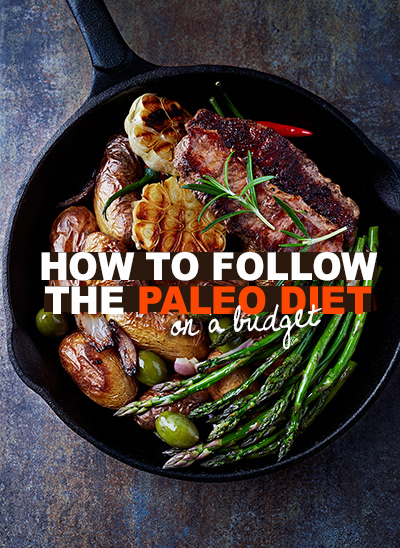Your body type doesn’t just help determine what sports you’re good at, influence what type of exercise you’ll love, and how easily you lose and gain weight, but can also affect how much and what type of foods best fuel your body and help you lose weight.
While many ectomorphs for example, can eat just about anything without gaining a pound, endomorphs are more sensitive to what they eat. Endomorphs need to pay particular attention to their diet to lose weight and improve health.
Step 1
Calorie Requirements
There are likely a combination of reasons that endomorphs struggle with their weight, one of which is that endomorphs appear to be more sensitive to the over-consumption of food. This means that the extra calories are more likely to be stored as fat compared to ectomorphs, resulting in a greater propensity for fat storage.
The calorie excess we’re taking about could simply be a chocolate bar a day too much. That’s it! On average, popular chocolate snack bars such as a pack of Milky Way or Snickers contain 250 calories or more. Let’s assume you consume 250 extra calories a day. That would work out at 1,750 extra calories per week. This amounts to roughly 2.1 lbs (1 kg) of fat gain per month and a whopping 26 lbs (12 kgs) per year!
Does that mean calorie counting forever? Not at all. But for the first few months you do need to closely watch your diet until you have a firm sense of how and what to eat. And at regular periods you might want to do a spring clean/ inventory of what your diet looks like. Reviewing your diet for any bad habits that have crept in, and then to re-evaluate and reset your diet.
To lose weight create moderate calorie deficit of about 500 to 750 calories per day. Avoid fast weight loss and restricting calories too much, as this can slow metabolism and make weight loss more challenging.
Step 2
Macronutrient Requirements
For endomorphs, it isn’t only calorie intake that’s important. Macronutrient ratio (the ratio of protein, carbohydrate and fat) is also a key factor in an endomorph’s diet.
People with an endomorph body type often have some degree of carbohydrate sensitivity and insulin sensitivity, which can increase the likelihood of weight gain, and developing prediabetes and type 2 diabetes .1
Carbohydrate rich foods are converted to sugar in the bloodstream faster leading to spikes and dips in blood sugar. These carbs are also more likely be stored as fat by the body, rather than be burned for energy. This is one of the reasons endomorphs tend to do better on a lower carb diet.
Macronutrient Ratios
A diet that is higher in protein and fat, with less carbs works well for people with an endomorph body type. If you’re an endomorph, try a macronutrient ratio of:
- Carbohydrate: 30 – 40%
- Protein: 30 – 35%
- Fat: 30 – 35%
Start with more carbs, such as a nutrient distribution of 40% carbs, 30% protein and 30% fats. If you find you’re not losing weight reduce your carb intake further.
A macronutrient ratio of 30% carbs, 35% protein, and 35% fats for endomorphs is recommended by ACE Fitness (American Council of Exercise) and ISSA (International Sports Sciences Association).
A moderate reduction in carbs can make a significant difference in helping carb-sentive endomorphs lose weight.
A ketogenic diet is also an option, which is a very low carb diet that can help diabetes control, lower blood sugar levels, and reduce weight. However, you should speak to your doctor before embarking on a very low carb diet, as it may require supervision or may not be suitable.
Benefits of a Lower Carb Diet
A moderately low carbohydrate, higher protein and fat diet will help endomorphs to:
- Lose weight and maintain weight loss.2
- A higher protein allows for a reduction in calories, while minimizing any feelings of deprivation or hunger. A protein rich meal is more satisfying and leaves you more full after eating, compared to carb-heavy meals.3
- About 20-30% of the calories from protein are burned by the body in the process of digestion. This is called the thermic effect, which is higher for protein than for fat or carbs. While anything eaten in excess is likely to lead to fat gain, a diet higher in protein is less likely to be stored as body fat than a diet high in carbs or fat.456
- Moderate carbs with higher protein will help prevent the muscle loss that occurs when lowering calories to lose weight.7
- Provide enough carbohydrates to fuel metabolic needs and maintain energy levels, while keeping blood sugar controlled and minimizing risk of diabetes and other diseases.
- Help make eating like this a lifestyle choice and a habit, as it isn’t restrictive, doesn’t exclude entire food groups and is easy to stick with.
- Eating a diet lower in carbs can have a positive impact on insulin levels and cause fewer blood sugar spikes, which can help to lower the risk of diabetes.
What Type of Carbs Should You Eat?
Not all carbs are created equal. There are different types of carbs. These are the best type of carbs for endomorphs and the carbs they should limit or avoid.
Complex carbs: The carbs you do eat should be “good carbs” (i.e. complex carbs) – predominantly vegetables and some smaller amounts of unrefined, high-fiber starches, such as quinoa and amaranth. Fruits are rich in important nutrients, but also higher in sugar. Therefore, aim to eat more servings of veggies than fruit.
Examples of complex carbs include whole grains (e.g. oats, brown rice, quinoa), legumes (e.g. beans, peas), whole vegetables, whole fruits.
Limit refined carbs: Keep away from sugar, refined carbohydrates and packaged food. Total sugar intake is a strong predictor of BMI (body mass index).89
Examples of refined carbs include white grains (e.g. white bread, white pasta, white rice), refined desserts (e.g. candy, cookies), and sweet drinks (e.g. fruit juice, and soda).
If possible, the best time for endomorphs to eat carbohydrate-rich foods, such as bread and pasta, is during the pre- and post-workout period when your body wants them most – for energy and when it will help your body repair and recover from your workouts and also limit fat gain.
What Type of Protein & Fat?
For endomorphs the focus should be on healthy fats and protein.
Lean protein. Choose lean protein or protein rich in healthy fats. Examples include lean cuts of beef, chicken, fish (including oily fish), and some plant-based proteins.
Healthy fats. Foods that are rich in healthy fat include olive oil, avocado, nuts and seeds, natural nut butters.
Think of the endomorph diet as eating a diet higher in protein and fat, and lower in carbs. It’s often more about cutting out certain types of carbs than anything else. For example breakfast might look like scrambled eggs on wholegrain toast with avocado.
If you have a pre-existing condition have a chat with your doctor before starting any new diet. They will be able to give personalised advice that takes your needs into consideration.
Endomorph Diet Summary
Remember to allow this to be your guide. A tool to help you reach your goals. Always keep the overall picture in mind (more protein, less refined carbs, etc). Don’t get too caught up in the minutiae, or allow it to rule you or overwhelm you.
We all have good days and bad days. The goal isn’t perfection. This isn’t a hold-your-breath style diet that you follow strictly for 10 days, it’s more of a lifestyle change.
So embrace it and implement the changes slowly and in a way that suits your needs, personality, and where you are now.
Overview
- Baseline macronutrient ratio: 30-40% carbs, 30-35% protein, 30-35% fats
- Carb tolerance/needs: Low
- Carb timing: Carb-dense foods are best consumed before/ after exercise.
- Exercise: Diet is important for endomorphs, as well as exercise. Therefore, endomorphs should also follow a workout plan/ increase physical activity.




